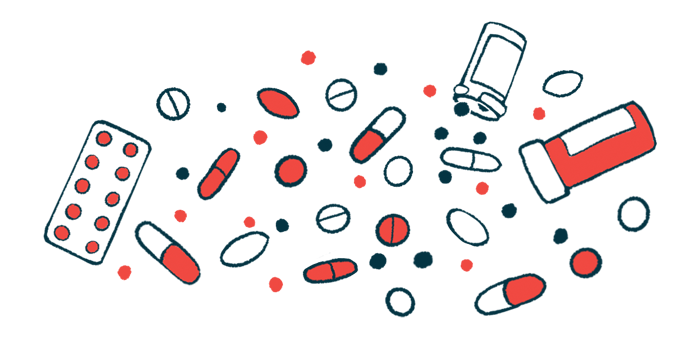
As a result of Crohn's disease, the colon or intestines are constantly irritated and wear away. Many parts of the digestive tract, including the stomach and intestines, may be affected. Crohn's disease comes in five forms, each targeting a distinct region of the gastrointestinal system. The origins of Crohn's disease are unknown. The immune system's reaction to foreign substances in the gut, such as food or bacteria, is a leading theory among experts. According to current theory, this triggers the chronic inflammation that characterizes Crohn's disease. Therapy options are condition- and severity-specific. There are five subtypes of Crohn's disease, each with its unique symptoms and affected area of the digestive system.
- ileocolitis
- ileitis
- gastroduodenal Crohn’s disease
- jejunoileitis
- Crohn's colitis
Individuals may simultaneously suffer from more than one subtype of Crohn's disease. This means that various areas of the digestive tract may be impacted simultaneously.
Ileocolitis

According to the Crohn's and Colitis Foundation of America, ileocolitis is the most prevalent type of Crohn's disease. The result is inflammation of the colon and the ileum (the lowest part of the small intestine). The following are some symptoms that may be experienced by those who suffer from ileocolitis:
- abdominal cramps or discomfort
- drops in body weight due to diarrhea.
Ileitis
Inflammation of the ileum is the sole organ affected by ileitis. Ileitis can be brought on by several things, including Crohn's disease, infections, and inflammatory illnesses. Ileitis has similar symptoms as ileocolitis. Ileitis and other types of Crohn's disease can cause fistulas in the digestive tract. Fistulas are holes formed in the wall of the small intestine by inflamed channels. A fistula connects the small intestine to another organ, tissue, or skin.
In the event of a fistula, digestive fluids may seep into nearby tissues or organs. Adverse health outcomes associated with fistulas include severe systemic infection, starvation, dehydration, and weight loss.
Intestinal strictures, or narrowings of the intestines, affect around half of the persons with ileitis. This is called a stricture, when intestinal wall tissue becomes inflamed and swells or scars due to the inflammation.
Crohn's colitis
Inflammation occurs exclusively in the large intestine in people with Crohn's colitis, also known as granulomatous colitis. Individuals with Crohn's colitis are more likely to get anus-related complications such as fistulas, ulcers, and abscesses. Crohn's disease comes in a variety of forms, and some of the symptoms of Crohn's colitis are:
- Rectal bleeding and diarrhea
- Stool and skin lesions that bleed.
- Ache in the Joints
- Crohn's disease affects the stomach and intestines.
Gastroduodenal Crohn’s Disease
Crohn's disease in the gastroesophageal junction and the first section of the small intestine is known as gastroduodenal Crohn's disease. Signs and symptoms may include:
- Weight loss sickness
- Vomiting
- loss of appetite
Jejunoileitis
The small intestine's top portion (the jejunum) can become inflamed in discrete areas due to jejunoileitis. Common signs and symptoms include:
- Having cramping or soreness in the stomach after eating
- diarrhea.
When inflammation persists over an extended period, fistulas can develop in the jejunum.
Identifying The Various Types of Crohn's Disease
Symptoms of Crohn's disease are generic and can be caused by several different diseases, making diagnosis difficult. Doctors conduct lab testing and undertake physical examinations to diagnose Crohn's disease. It is also possible to determine the subtype of Crohn's disease using these assessments.
Check-Up On the Body
Doctors often measure vitals like heart rate and blood pressure and take a patient's weight to get a sense of their general health during a physical exam. Also, they will look for symptoms that might point to Crohn's disease, such as:
- Disturbed gastrointestinal rhythms, including abdominal distention or bloating
- A doctor will also look at a patient's medical and family history for clues as to what might be causing their symptoms.
Analyses In the Lab
The following laboratory tests may be used by your doctor in the process of diagnosing Crohn's disease and ruling out other possible causes:
- Examining the blood
- samples of stool
Abdominal computed tomography (CT) or magnetic resonance imaging (MRI), Upper gastrointestinal (GI) endoscopy, and enteroscopy
Treatment

Yet, there is currently no treatment available for Crohn's disease. However, disease symptoms and consequences of Crohn's can be managed with a mix of medical and surgical interventions.
Medication
A doctor may prescribe you a different medicine or dose based on your specific symptoms. To treat Crohn's disease, doctors often prescribe one of the following medicine classes:
Aminosalicylates
The recent diagnosis of Crohn's disease or moderate symptoms may respond well to aminosalicylates since they help manage inflammation. Aminosalicylates contain compounds like:
- balsalazide
- mesalamine
- sulfasalazine
- Corticosteroids
Corticosteroids reduce inflammation by dampening the immune system's response to it. Yet, these drugs can increase susceptibility to infection and have unintended consequences, including hyperglycemia, hypertension, and acne. Instances of corticosteroids include:
- hydrocortisone
- prednisone
- methylprednisolone
- Immunomodulators
Immunomodulators, like corticosteroids, assist in regulating inflammation by dampening immune responses. Immunosuppressants and -modulators may not start working for weeks or even months.
Surgery
Surgical intervention is a standard treatment option for those with Crohn's disease. Almost 60% of patients diagnosed with Crohn's disease in one research went on to have surgery within 20 years. The following conditions warrant surgical intervention, according to some physicians:
- intestinal fistulas
- evere intestinal strictures
- bowel obstructions
- excessive bleeding that poses a serious risk of death



